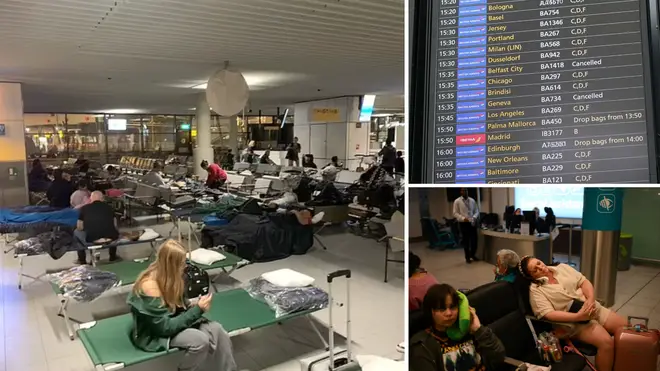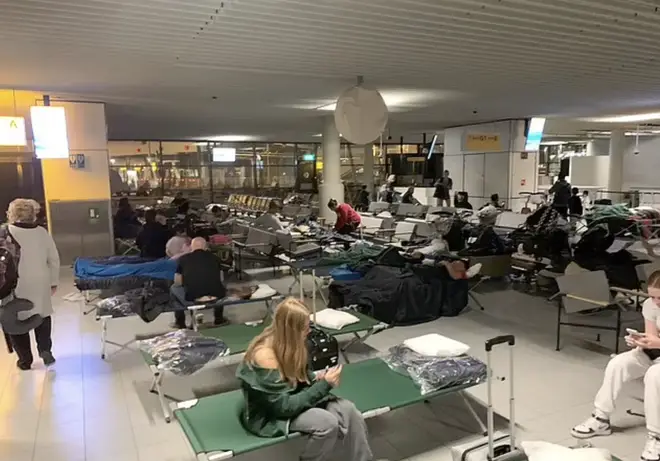
Ben Kentish 10pm - 1am
30 August 2023, 09:39

Air traffic control chaos that has left Brits facing a week of almost two weeks to get a flight home was triggered by an "unusual piece of data", the systems' boss has said.
Martin Rolfe, the chief executive of National Air Traffic Services (Nats), said even junk data like that sent to the system cannot just be discarded like spam because of the key safety role controllers play.
The fault brought forced Nats to input information manually, leading to a reduction in flight plans that has caused hundreds of cancelled and delayed flights and affected hundreds of thousands of passengers since Monday.
Rolfe said on Wednesday: "It wasn't an entire system failure. It was a piece of the system, an important piece of the system.
"But in those circumstances, if we receive an unusual piece of data that we don't recognise, it is critically important that that information - which could be erroneous - is not passed to air traffic controllers."
He told the BBC: "Our systems are safety-critical systems, they are dealing with the lives of passengers and the travelling public.
"So even things like just throwing data away needs to be very carefully considered.
"If you throw away a critical piece of data you may end up in the next 30 seconds, a minute or an hour with something that then is not right on the screens in front of the controller.
"So it is nothing like throwing away spam."
Tens of thousands of stranded passengers could face waits of up to two weeks for return flights back to the UK as the chaos enters its third day.
Stranded holidaymakers have been forced to foot the bill of staying in accommodation for several nights of face sleeping on the airport flight as they await news on when they will return home.
After thousands of passengers were affected by a technical glitch that hit UK airspace on Monday, analysis shows at least 281 flights were cancelled on Tuesday at the UK's six busiest airports.
Despite the travel chaos, passengers have been told they face no chance of being compensated due to ‘extraordinary circumstances’ outside of the airlines' control.
Some passengers may even have to wait as long as two weeks for their return flights home, The Sun reports.
One couple, Ken Blanks and his wife Lisa, say they have been told their next available flight back from Gran Canaria is in 12 days.
"I've finished my holiday but there's nobody from easyJet talking to us," he told the publication.
"The next flight is in 12 days so we're stuck here. The airport offered some families hotels but they have to keep getting taxis there and back. It’s 200 euros from the airport."

Neil Scott, from Newcastle, told LBC he could be stuck in Faro, Portugal, for a week after the air traffic control glitch.
He was set to fly to Glasgow on Monday evening and then head home but now EasyJet have offered them an alternative flight on September 5.
Neil said he will have to take unpaid leave from his social care job if they have to stay until then, and his wife will be late back to her job at a school.
The pair are on holiday with their two teenage sons who also face missing school.
Because he was offered a replacement flight on September 5 by his airline, he cannot book alternative flights and then claim a refund.
Neil said he was left with the possibility of taking unpaid leave as he cannot get home for at least a week.
Rolfe has already said there are no indications that the failure was caused by a cyber-attack and said systems have been running normally since Monday afternoon.
He added: "We are already working closely with them to provide a preliminary report to the Secretary of State for Transport on Monday.
"The conclusions of this report will be made public."
The disruption, which began on Bank Holiday Monday, was repaired within hours but the travel chaos is expected to last for some time.
The fault was "identified and remedied" but the backlog of flights meant passengers face days of disruption in the final part of the summer holidays.